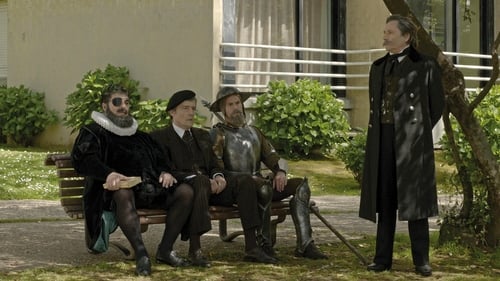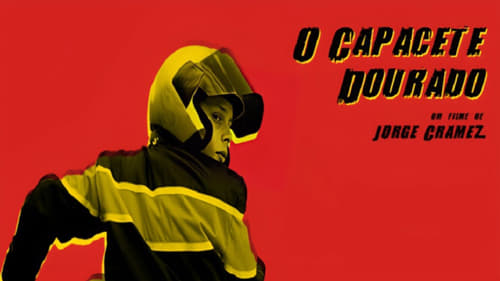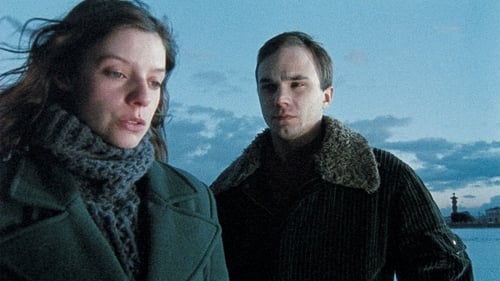
First Assistant Director
Rita is fifteen and spends the summer between warm afternoons of teenage love and party nights with her friend Sara. From Portugal to the South Pacific, the pleasures of this routine will take a turn when the young girl visits the art show of a new neighbor in the local community.

Assistant Director
Don Quixote, Luís de Camões, Camilo Castelo Branco and Teixeira de Pascoaes meet in an eternal garden in the middle of a modern city and talk about life.

Director
João still lives at home with his parents. With absolutely no idea what to do with his life, he leaves the city centre to hang out in the outskirts. The abandoned factory where he spends his days is the lingering echo of a better past. What lies ahead seems worse as João comes face to face with the failure of youth.

Assistant Director
A look at the art of two pairs of brothers, plastic artists: João Queiroz, Jorge Queiroz; Pedro Tropa and Francisco Tropa.

Production Manager
A look at the art of two pairs of brothers, plastic artists: João Queiroz, Jorge Queiroz; Pedro Tropa and Francisco Tropa.

Script Supervisor
Shaken by a divorce in the 1920s, Portuguese poetess Florbela Espanca uses her writing to deal with her tumultuous relationship with men, eroticism and love.

First Assistant Director
Despite his age and general weariness, Gebo keeps on working as an accountant to provide for his family. He lives with his wife, Doroteia, and his daughter-in-law, Sofia, but it is the absence of João, son and husband, that worries them.Gebo seems to be hiding something, especially to Doroteia, who is anxiously waiting to see her son again. Sofia is also waiting for her husband to come home, and yet she fears him. All of a sudden, João arrives and everything changes.

Second Unit
The characters from a historical piece of art come to life to discuss poignant themes such as war and world peace.

Script Supervisor
"Come and see this world end!" - wrote the the priest António Fontes, father of folk medicine and "burning witches" in Vilar de Perdizes, a desperate plea in his precious monograph of the Barroso region. And I (João Botelho) went. Then I saw the people and the land. Haunting on discovery. Heart sank. "God is good but the devil is not so bad!" - We learned from this Community habits and that is great, tough and generous. And I also learned that no fairer place for a demand of life and even the elusive happiness there, I assure you, it is always possible.

Assistant Director
"Come and see this world end!" - wrote the the priest António Fontes, father of folk medicine and "burning witches" in Vilar de Perdizes, a desperate plea in his precious monograph of the Barroso region. And I (João Botelho) went. Then I saw the people and the land. Haunting on discovery. Heart sank. "God is good but the devil is not so bad!" - We learned from this Community habits and that is great, tough and generous. And I also learned that no fairer place for a demand of life and even the elusive happiness there, I assure you, it is always possible.

Script Supervisor
Macário spends an entire train journey to the Algarve talking to a woman he does not know about the trials and tribulations of his love life: straight after starting his first job as a book keeper at his Uncle Francisco's shop in Lisbon he falls madly in love with a young blonde, who lives across the road. No sooner does he meet her than he straightaway wants to marry her. His uncle, totally opposed to the match, fires him and kicks him out of the house. Macário departs for Cape Verde where he makes his fortune. When he finally wins his uncle’s approval to marry his beloved, he discovers the “singularity” of his fiancée’s character.

Script Supervisor
The darkness of night, a barely lit place, motorbikes flirting with danger: a group of teenagers at a crossroads playing chicken with unaware passing cars. Jota (Eduardo Frazão) stands out from this group, unclassifiable; his destiny has no straight lines save those on the asphalt.
Jota lives in permanent conflict with everything and everybody in his small town. No room for stillness. And then comes Margarida (Ana Moreira). Jota has no inside, Margarida has no outside. In spite of, or because of, that, they meet. What can they do? They can just ride, they can get away with it even if its all messed up. Love is to be lived.

Production Manager

Production Manager
Sonia, a girl from St Petersburg, decides to seek a better life in western Europe. She first gets a job at a car dealer in Germany. But she is suddenly kidnapped and sold into sexual slavery. She will be dragged from country to country and resistance will only bring her misery and humiliation.

Assistant Director
Three girls from the Lisbon suburbs, Bruna, Marta and Sara, are having a bit of fun. They've discovered that people in general are prepared to give things to young, attractive and good-natured people, and they exploit this shamelessly. Francisco, a neighbour of theirs, has given up on life. He's abandoned his wife and child to take refuge far from those who might hurt him ; in effect dying. He's ashamed of this, and never ever looks at anyone. This has given him, amongst the women of the neighbourhood, the reputation of being able to tell, just by looking at a couple, how long they'll stay together. The sudden news of the death of his much loved wife, upsets Francisco's routine.

Boy at Exhibition (uncredited)
Young Jesus is taken on a vacation by his parents (Rita Blanco, Adriano Luz) to a deserted beach resort. They accidentally fall into overnight wealth after Jesus digs in the sand, uncovering a large drug stash. Others characters intersecting here include an alcoholic actress, a philandering banker, a general trafficking in arms, priests who close their church and head north as hitchhikers, politicians who watch an all-girl production of Julius Caesar, and beggars who recite a children's story in a huge heap of trash.

Boy in Opening Credits
A film adaptation of the Charles Dickens novel "Hard Times" set in a Portuguese industrial town of the 1980s.

Rosa's Son (uncredited)
In Africa, during the colonial war, a patrol is lost in the bush and a soldier dies in operation. Twelve years later, in Portugal, the soldier family meets in peace.

Baby (uncredited)
The film was to be a documentary, but evolved during production to a fictional film. It nevertheless adheres strictly to the poems and letters exchanged by two of the most outstanding names of the Modernist Movement, Fernando Pessoa (in Lisbon) and Mário de Sá-Carneiro (in Paris). Their endless conversation was dramatically and suddenly terminated.

















